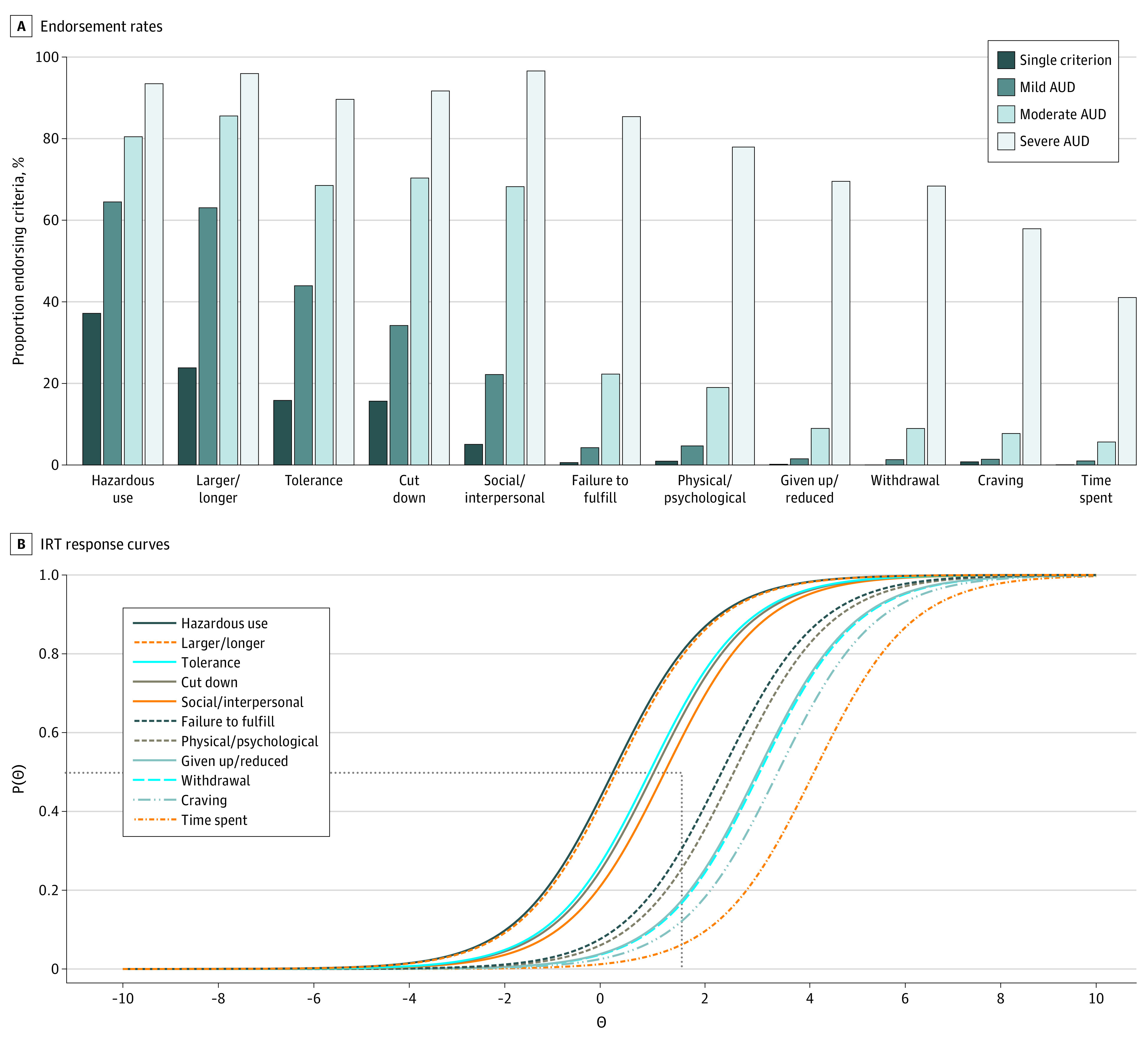Figure 1. Cross-Sectional Collaborative Study on the Genetics of Alcoholism (COGA) Cohort (N = 13 110) Endorsement Rates and Item Response Theory (IRT) Response Curves for 11 Lifetime Alcohol Use Disorder (AUD) Criteria.

B, The probability of endorsement of each AUD criteria, P(θ) (y-axis), is plotted as a function of increasing severity of the underlying AUD latent trait, θ (x-axis). The horizontal dotted line represents a 50% probability of endorsing criteria; the vertical dotted line represents 2 SD above the mean of AUD latent severity. Criteria with difficulty parameters of 2 or above (ie, to the right of intersection of vertical and horizontal lines: Failure to fulfill, Physical/psychological, Craving, Withdrawal, Given up/reduced, and Time spent) were identified as high-risk diagnostic criteria. Hazardous use refers to recurrent alcohol use (≥3 times) in situations in which it is physically hazardous; Larger/longer = drinking in larger amounts or over longer periods than intended; Tolerance = need for markedly increased amounts of alcohol to achieve intoxication or desired effect or a markedly diminished effect with continued use of the same amount of alcohol; Cut down = persistent desire or 3 or more unsuccessful efforts to stop, cut down, or control drinking; Social/interpersonal = continued alcohol use despite having persistent or recurrent (≥3 times) social or interpersonal problems caused or exacerbated by the effects of alcohol; Failure to fulfill = recurrent use of alcohol resulting in a failure to fulfill major role obligations at work, school, or home; Physical/psychological = continued drinking despite knowledge of having a persistent or recurrent physical or psychological problem that is likely to be caused or exacerbated by drinking; Craving = craving or a strong desire or urge to use alcohol; Given up/reduced = important social, occupational, or recreational activities given up or reduced because of drinking; Withdrawal = the characteristic withdrawal syndrome for alcohol or drinking (or using a closely related substance) to relieve or avoid withdrawal symptoms; Time spent = a great deal of time spent in activities necessary to obtain, use, or recover from the effects of drinking.
